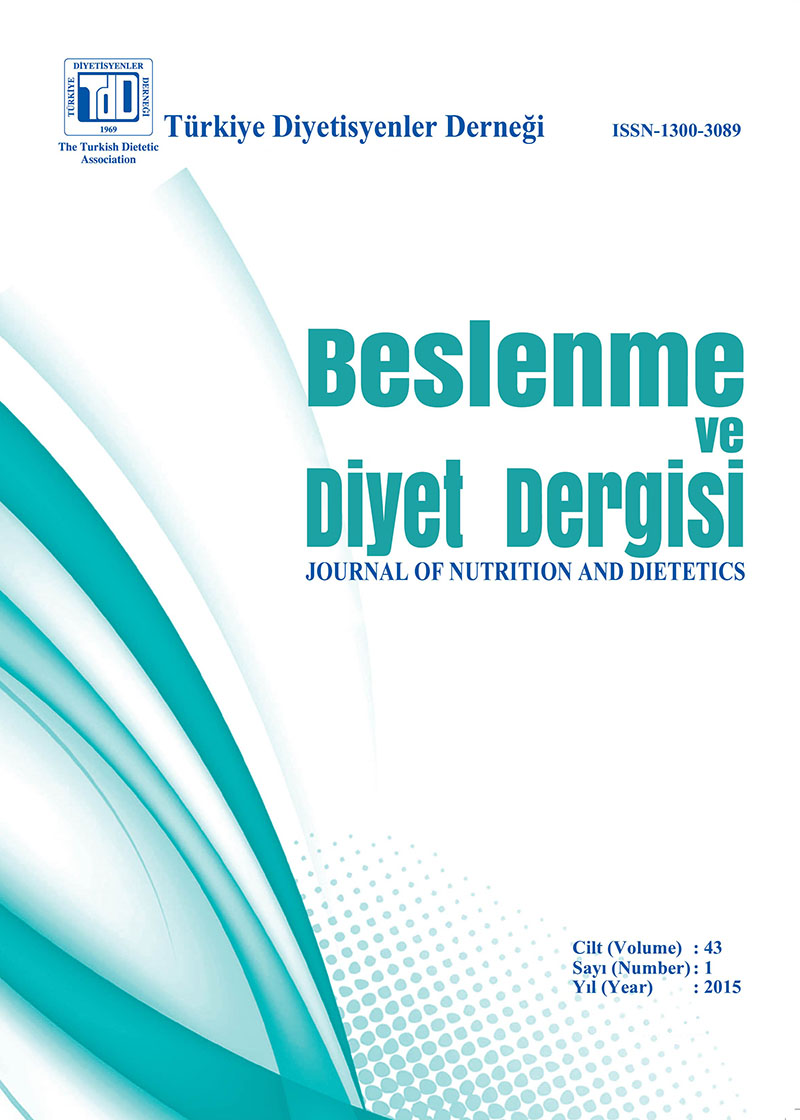Meal Patterns of University Students and the Impact of Nutrition Education on their Nutritional Knowledge
Keywords:
Nutrition education, university studentsAbstract
Aim: This study has been planned and conducted to determine nutritional habits of sophomore students who attend to certain departments of Health Sciences Faculty and took nutritional courses for the first time; and the effects of the nutrition courses given to them on their nutritional knowledge. Subjects and Methods: 238 sophomore students made the population of the study, who attend to midwifery, child development and nursing departments of Ankara University Health Sciences Faculty. Sample was consisted of 192 students who agreed to participate. Data were collected by a questionnaire. Percentages and Chi square (χ2) analysis were used, also Paired samples t test was used for dependent groups. In the study, departments and gender were used as explanatory variables. Results: Total of 192 students participated in the study and 10.4% of them were males, 89.6% of them were females. Mean age was 20.4±1.04 years for males and 20.9±0.86 years for females. Out of total, 26.0% of the students consumed regular meals and 74.0% of them consumed irregular meals (p>0.05). In all three departments the mean nutritional scores of students were lower before taking nutrition courses (midwifery= 19.34±4.01, child development= 15.91±3.89, nursing= 21.95±2.94) compared to the scores after taking nutrition courses (midwifery= 25.84±2.56, child development= 24.54±3.03, nursing= 26.51±2.11). The mean nutrition scores of genders before the classes have been found 18.40±5.72 and 24.15±3.19 for males and 19.72±4.08 and 26.00±2.62 for females. The effect of nutrition courses on the mean nutritional scores of students was statistically significant (p<0.001). Conclusion: The nutrition courses given to the sophomore students increased their nutritional knowledge significantly. It might be said that these courses might help the students to use and transfer the accurate nutrition information in their future professional life.

